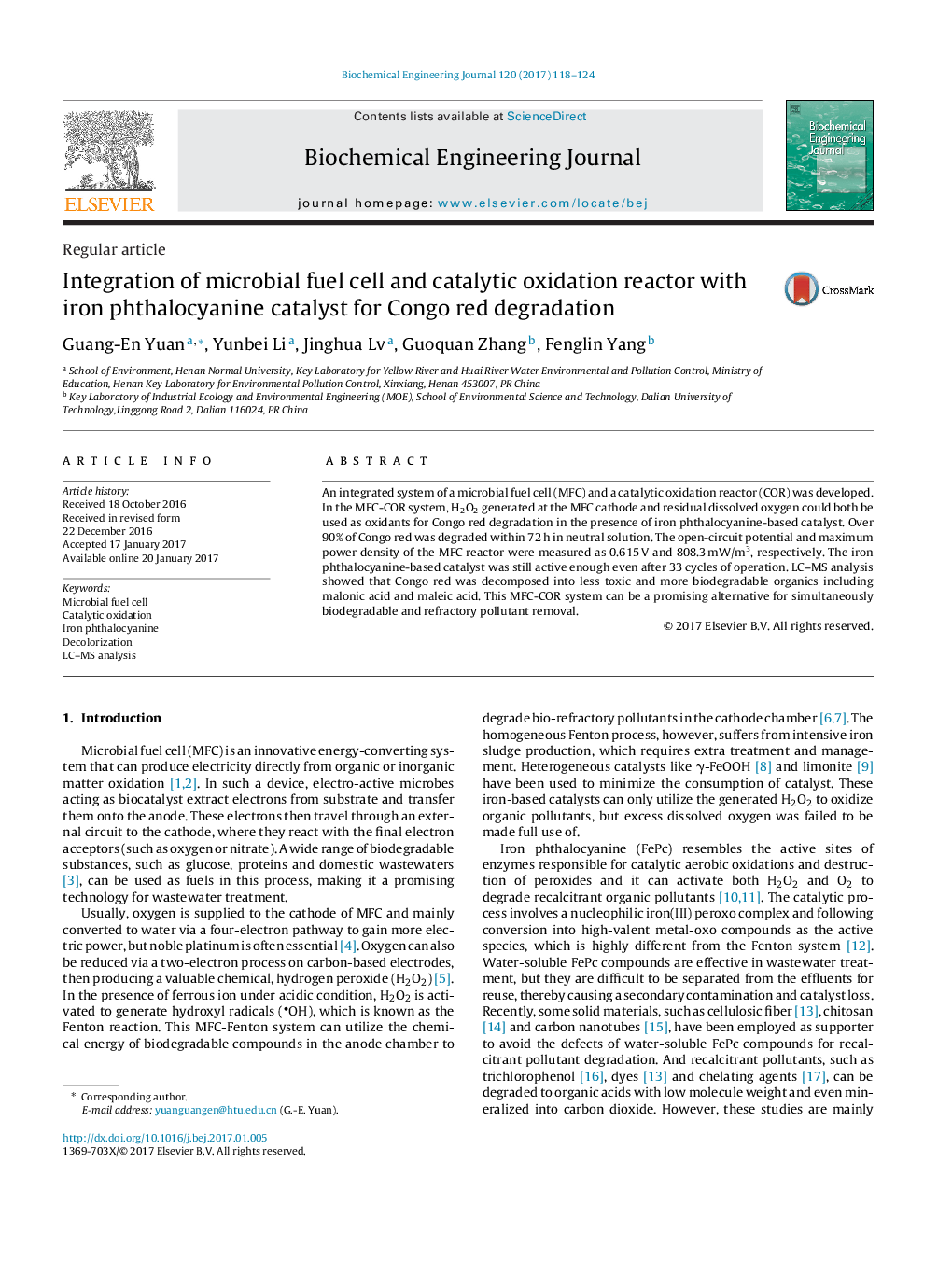| Article ID | Journal | Published Year | Pages | File Type |
|---|---|---|---|---|
| 6450360 | Biochemical Engineering Journal | 2017 | 7 Pages |
â¢A MFC and a COR reactor were integrated together.â¢H2O2 and O2 can both be used as oxidants.â¢Over 90% of Congo red was degraded within 72 h.â¢Stabilities of catalysts were evaluated after 100 days of operation.â¢Congo red was degraded into less toxic and more biodegradable organics.
An integrated system of a microbial fuel cell (MFC) and a catalytic oxidation reactor (COR) was developed. In the MFC-COR system, H2O2 generated at the MFC cathode and residual dissolved oxygen could both be used as oxidants for Congo red degradation in the presence of iron phthalocyanine-based catalyst. Over 90% of Congo red was degraded within 72Â h in neutral solution. The open-circuit potential and maximum power density of the MFC reactor were measured as 0.615Â V and 808.3Â mW/m3, respectively. The iron phthalocyanine-based catalyst was still active enough even after 33 cycles of operation. LC-MS analysis showed that Congo red was decomposed into less toxic and more biodegradable organics including malonic acid and maleic acid. This MFC-COR system can be a promising alternative for simultaneously biodegradable and refractory pollutant removal.
Graphical abstractDownload high-res image (133KB)Download full-size image
